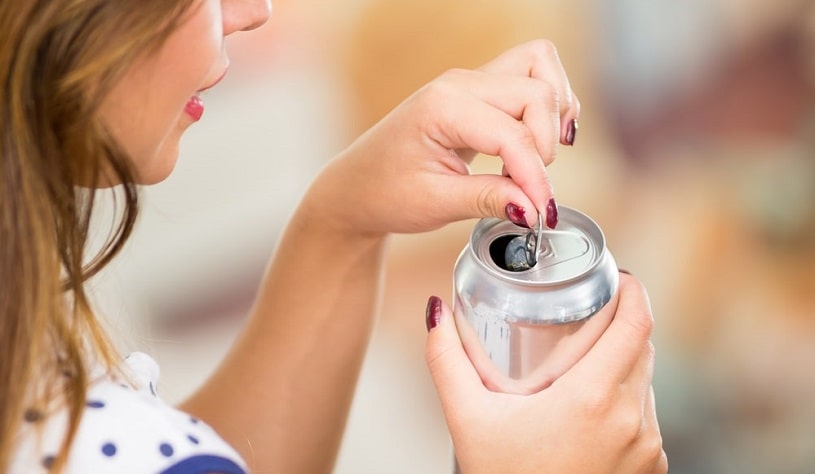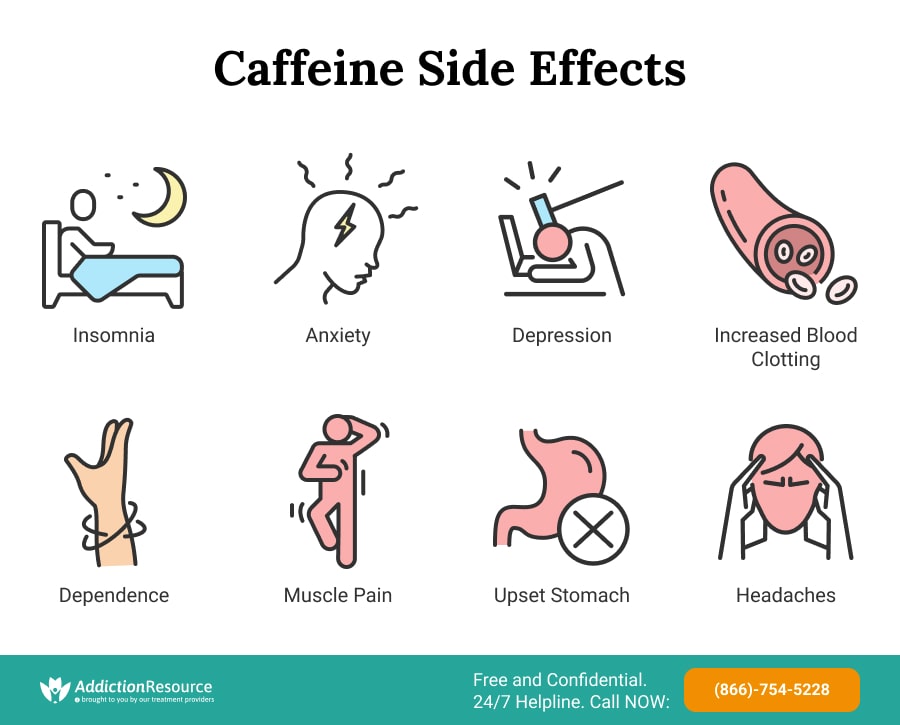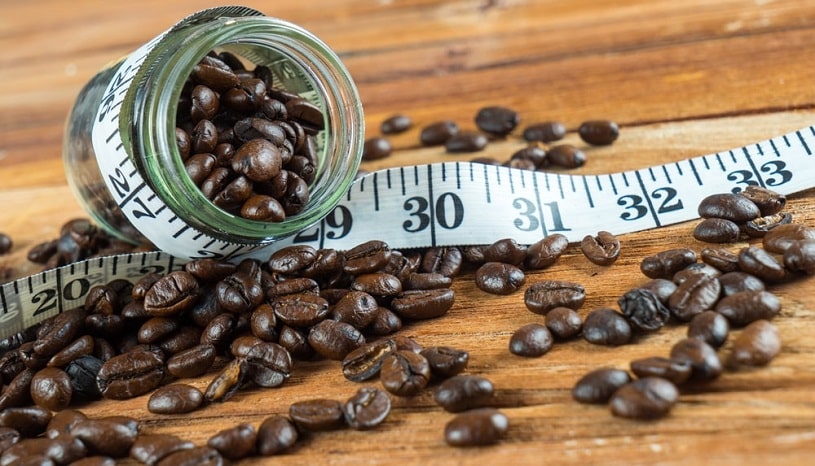
Caffeine, by definition, is a central nervous system stimulant and the most widely consumed psychoactive drug in the world. It belongs to the class of drugs known as methylxanthines, including other common stimulants such as theophylline and theobromine. The stimulant can be found in coffee, energy drinks, Guarana beans, dark chocolate, and so on. The stimulant affects the body in several ways.
Table Of Contents:
Still, the most prominent action appears to be through its ability to reversibly block adenosine receptors, a molecule associated with drowsiness and sleep. It leads to increased alertness and wakefulness. It also stimulates certain sections within the autonomic nervous system, leading to the characteristic features of increased heart rate, blood pressure, and physical activity. While there are several well-known benefits of coffee, chronic consumption may lead to dependence and other long-term caffeine side effects, leading to the age-old question, “Is caffeine bad for you?”.
Benefits of Coffee
Regular consumption of coffee has been associated with various health benefits, both physically and emotionally. Some benefits associated with its consumption include:
It May Have Positive Effects on Mood
Long-term coffee consumption has been associated with positive effects on mood. A large-scale, 10-year study showed that the risk of developing a major depressive disorder reduced with increasing coffee consumption.

Another study found that when adjusted for age, sleep disturbances, and depression, suicide risk was decreased in women who consumed 1-4 cups of coffee a day.
It Increases Alertness and Physical Performance
Due to its role as a stimulant, the drug has a significant potential to promote alertness, reflexes, increase peak physical performance and endurance. Two possible mechanisms behind this may be the ability of coffee to block the activity of adenosine at its receptors and its ability to boost catecholamine production. Catecholamines are stress hormones that prepare the body for danger by increasing its ability to deal with the physical threat by boosting physical performance.
It Reduces the Risk of Developing Dementia
Several studies have pointed out an inverse relationship between the degree of coffee consumption and the risk of developing neurodegenerative disorders such as Alzheimer’s disease, dementia, and Parkinson’s disease later on in life. The mechanisms behind this neuroprotective function have not been fully explored, but research points primarily towards its effects on adenosine receptors.
It May Be Protective Against Heart Disease
It has been shown to have a protective effect against cardiovascular disease and shows reduced mortality due to cardiovascular disease in individuals who regularly consume the drug when adjusted for age and other health conditions.
The relationship between caffeine and blood pressure is somewhat contradictory, with the stimulant showing protective effects in some individuals and increasing the risk of hypertension in other individuals.
It May Lower the Risk of Developing Certain Types of Cancers
It is protective against certain types of cancers such as colorectal cancer and malignant melanoma.
It Increases the Amount and Activity of Beneficial Bacteria Within the Gut
A study undertaken to observe the effect of moderate coffee consumption on gut bacteria showed that over three weeks, the amount and activity of Bifidobacterium spp increased significantly without altering the dominant microbiota’s overall profile gastrointestinal tract. Bifidobacterium spp has been found to possess several beneficial properties within the human gastrointestinal tract, such as protection against colorectal cancer, inflammatory bowel diseases, diarrhea, and necrotizing colitis in infants.
It May Be Protective Against Gout
Gout is a form of inflammatory arthritis caused by the deposition of urate crystals within certain joint cavities. It then stimulates an aggressive immune response by the body leading to pain, tenderness, and swelling. A 26-year follow-up study showed that women who consumed the drug daily over a long period had a reduced risk of developing gout.
Side Effects of Caffeine
Despite the benefits of coffee, there are still several short-term caffeine side effects. Most of these caffeine side effects can be attributed to the stimulant effects of the drug on the body and are usually related to the dose consumed. The common effects of caffeine associated with having caffeine in your system include:
Effects on the Central Nervous System
The substance can cause restlessness and even insomnia due to its ability to block the activity of adenosine, which stimulates alertness and wakefulness. Also, because it narrows cerebral blood vessels, caffeine withdrawals cause a rebound widening of the cerebral blood vessels leading to a caffeine headache.

It can cause dizziness and confusion when taken at high doses or in individuals who are especially sensitive to the stimulant. Due to the drug’s ability to activate the sympathetic nervous system, it can mimic the symptoms of anxiety, such as rapid breathing, an increased heart rate, and increased physical stimulation.
Effects on the Circulatory and Respiratory System
Caffeine is a stimulant and causes an increase in cardiac activity. Also, the drug stimulates the sympathetic nervous system leading to an increase in respiratory rate. It has a mild diuretic effect which may lead to dehydration in individuals by causing them to lose more fluid than they take in.
Effects on the Gastrointestinal System
Caffeine stimulates the large colon and rectum, leading to the increased passage of stool. It also relaxes the lower esophageal sphincter, allowing the contents of the stomach to be regurgitated.
Effects on the Excretory System
Frequent urination can be caused by the ability of the stimulant to increase blood flow to the kidney.
Effects on the Musculoskeletal System
Caffeine acts as a CNS stimulant and can also increase calcium release by cells, leading to increased muscle sensitivity and activity, causing tremors.
Long-Term Side Effects
Most of the adverse reactions listed above are the short-term side effects of consuming large doses of the drug within a relatively short period. Chronic consumption is also associated with several long-term caffeine side effects, especially when taken in high doses leading to coffee intoxication.
These Include:
- It may predispose women to bone fractures (especially at the hip)
- Chronic insomnia
- Chronic anxiety
- Some individuals may develop a chronic caffeine headache
- Depression
- Digestive issues
- It may cause high blood pressure or aggravate already existing high blood pressure
- It may be linked to miscarriages and low birth weight in infants
- Tolerance
- Dependence
- Withdrawal symptoms
Caffeine Allergy
Most individuals can safely consume as much as 400mg of the stimulant without caffeine adverse effects. However, some people may react significantly when they consume even the smallest amounts of the drug. A caffeine allergy is an exceedingly rare condition that occurs when the body’s immune system recognizes the drug as a harmful invader and mounts an excessively aggressive immune response against it. The symptoms of a caffeine allergy may range from mild and mostly irritating symptoms such as itchiness to potentially severe and life-threatening conditions such as anaphylaxis.
The Symptoms Include:
- Itching of the mouth, tongue, or lip
- Swelling of the face, eyes, lips, or tongue
- Hives
- Difficulty breathing because of swollen throat or tongue
- Wheezing
- Coughing
- Nausea, abdominal pain, or vomiting
- Rapid heartbeat
- Dizziness
Caffeine Effects on Weight
Long-term coffee consumption has been associated with a reduced mean weight gain as opposed to individuals who do not consume coffee. This has been attributed to the ability of coffee to boost metabolism, therefore increasing calorie consumption and thus promoting weight loss.

Dealing With Dependence
So to finally answer the question, “Is caffeine bad for you?”. While coffee dependence is not considered a “true addiction,” tolerance to the drug is possible. Upon cessation of the stimulant, most individuals notice minor withdrawals such as a caffeine headache, irritability, tiredness, and even insomnia, especially when combining caffeine and alcohol. Therefore it is essential to remember to consume the stimulant only within levels considered safe for your immediate and long-term health. Most sources state that 400mg of the drug a day (the equivalent of 4-5 cups) is considered safe for most adults without the risk of having any adverse effects associated with excess coffee consumption.
Frequently Asked Questions
Why Does Coffee Make You Poop?
Several studies have supported the mild laxative effect of the stimulant. It is believed to be due to the drug’s stimulatory effects on the distal colon and the intestines. However, excess consumption may lead to gastrointestinal distress and diarrhea. Also, certain evidence has pointed out that even decaffeinated coffee (decaf) may also have a laxative effect pointing to the presence of other active molecules besides the stimulant.
Does Coffee Dehydrate You?
Coffee is known to have a mild diuretic effect when taken at average doses. It means that it increases urine production, probably by stimulating blood flow to the kidneys. However, coffee is unlikely to dehydrate you unless taken at excessively high doses, and even then, the net effects were found to be minimal.
Does Caffeine Stunt Your Growth?
A popular misconception is that coffee has the potential to stunt growth, especially when consumed by adolescents. Currently, there is no valid scientific evidence supporting this claim, and coffee has not been found to significantly affect the future height of young individuals.
Does Caffeine Help Headaches?
Research has shown the effectiveness of the stimulant in the treatment of headaches, whether as a stand-alone drug or in combination with other popular medications for headaches. This is because of the vasoconstrictive effects of caffeine and its ability to increase the absorption and effectiveness of several other medications for headaches. It may explain while some individuals may experience a caffeine headache during coffee withdrawal.
Can Caffeine Cause Anxiety?
While the long-term mood benefits of coffee have been well-noted, taking the stimulant in high doses has been proven to trigger anxiety symptoms in certain individuals, a condition known as caffeine-induced anxiety. It is seen especially in individuals who already have pre-existing anxiety conditions.
Hope Without Commitment
Find the best treatment options. Call our free and confidential helpline
Most private insurances accepted
Find Drug Rehabilitation Centers Near You Anywhere In the US
Addiction Resource team has compiled an extensive list of the top drug rehabilitation facilities around the country. Use our locator tool to find the best centers near you.
Page Sources
- Rogers, P. J., Heatherley, S. V., Hayward, R. C., Seers, H. E., Hill, J., & Kane, M. (2005). Effects of caffeine and caffeine withdrawal on mood and cognitive performance degraded by sleep restriction. Psychopharmacology, 179(4), 742–752. https://pubmed.ncbi.nlm.nih.gov/15887055/
- Lovallo, W. R., Farag, N. H., Vincent, A. S., Thomas, T. L., & Wilson, M. F. (2006). Cortisol responses to mental stress, exercise, and meals following caffeine intake in men and women. Pharmacology, biochemistry, and behavior, 83(3), 441–447. https://www.ncbi.nlm.nih.gov/pmc/articles/PMC2249754/
- O'Neill, C. E., Newsom, R. J., Stafford, J., Scott, T., Archuleta, S., Levis, S. C., Spencer, R. L., Campeau, S., & Bachtell, R. K. (2016). Adolescent caffeine consumption increases adulthood anxiety-related behavior and modifies neuroendocrine signaling. Psychoneuroendocrinology, 67, 40–50. https://www.ncbi.nlm.nih.gov/pmc/articles/PMC4808446/
- Cappelletti, S., Piacentino, D., Sani, G., & Aromatario, M. (2015). Caffeine: cognitive and physical performance enhancer or psychoactive drug?. Current neuropharmacology, 13(1), 71–88. https://www.ncbi.nlm.nih.gov/pmc/articles/PMC4462044/
- Borota, D., Murray, E., Keceli, G., Chang, A., Watabe, J. M., Ly, M., Toscano, J. P., & Yassa, M. A. (2014). Post-study caffeine administration enhances memory consolidation in humans. Nature neuroscience, 17(2), 201–203. https://pubmed.ncbi.nlm.nih.gov/24413697/
- Lieberman, H. R., Wurtman, R. J., Emde, G. G., Roberts, C., & Coviella, I. L. (1987). The effects of low doses of caffeine on human performance and mood. Psychopharmacology, 92(3), 308–312. https://pubmed.ncbi.nlm.nih.gov/3114783/
- Nehlig, A., Daval, J. L., & Debry, G. (1992). Caffeine and the central nervous system: mechanisms of action, biochemical, metabolic and psychostimulant effects. Brain research. Brain research reviews, 17(2), 139–170. https://pubmed.ncbi.nlm.nih.gov/1356551/
- Qi, H., & Li, S. (2014). Dose-response meta-analysis on coffee, tea, and caffeine consumption with risk of Parkinson's disease. Geriatrics & gerontology international, 14(2), 430–439. https://pubmed.ncbi.nlm.nih.gov/23879665/
- Flaten, V., Laurent, C., Coelho, J. E., Sandau, U., Batalha, V. L., Burnouf, S., Hamdane, M., Humez, S., Boison, D., Lopes, L. V., Buée, L., & Blum, D. (2014). From epidemiology to pathophysiology: what about caffeine in Alzheimer's disease?. Biochemical Society transactions, 42(2), 587–592. https://www.ncbi.nlm.nih.gov/pmc/articles/PMC4440674/
- Acheson, K. J., Zahorska-Markiewicz, B., Pittet, P., Anantharaman, K., & Jéquier, E. (1980). Caffeine and coffee: their influence on metabolic rate and substrate utilization in normal weight and obese individuals. The American journal of clinical nutrition, 33(5), 989–997. https://pubmed.ncbi.nlm.nih.gov/7369170/
- Koot, P., & Deurenberg, P. (1995). Comparison of changes in energy expenditure and body temperatures after caffeine consumption. Annals of nutrition & metabolism, 39(3), 135–142. https://pubmed.ncbi.nlm.nih.gov/7486839/
- Hill, J. O., Wyatt, H. R., Reed, G. W., & Peters, J. C. (2003). Obesity and the environment: where do we go from here?. Science (New York, N.Y.), 299(5608), 853–855. https://pubmed.ncbi.nlm.nih.gov/12574618/
- Lopez-Garcia, E., van Dam, R. M., Rajpathak, S., Willett, W. C., Manson, J. E., & Hu, F. B. (2006). Changes in caffeine intake and long-term weight change in men and women. The American journal of clinical nutrition, 83(3), 674–680. https://pubmed.ncbi.nlm.nih.gov/16522916/
- Costill, D. L., Dalsky, G. P., & Fink, W. J. (1978). Effects of caffeine ingestion on metabolism and exercise performance. Medicine and science in sports, 10(3), 155–158. https://pubmed.ncbi.nlm.nih.gov/723503/
- Nehlig, A., & Debry, G. (1994). Caffeine and sports activity: a review. International journal of sports medicine, 15(5), 215–223. https://pubmed.ncbi.nlm.nih.gov/7960313/
- Hodgson, A. B., Randell, R. K., & Jeukendrup, A. E. (2013). The metabolic and performance effects of caffeine compared to coffee during endurance exercise. PloS one, 8(4), e59561. https://pubmed.ncbi.nlm.nih.gov/23573201/
- Jaquet, M., Rochat, I., Moulin, J., Cavin, C., & Bibiloni, R. (2009). Impact of coffee consumption on the gut microbiota: a human volunteer study. International journal of food microbiology, 130(2), 117–121. https://pubmed.ncbi.nlm.nih.gov/19217682/
- Loftfield, E., Freedman, N. D., Graubard, B. I., Hollenbeck, A. R., Shebl, F. M., Mayne, S. T., & Sinha, R. (2015). Coffee drinking and cutaneous melanoma risk in the NIH-AARP diet and health study. Journal of the National Cancer Institute, 107(2), dju421. https://pubmed.ncbi.nlm.nih.gov/25604135/
- Liu, J., Shen, B., Shi, M., & Cai, J. (2016). Higher Caffeinated Coffee Intake Is Associated with Reduced Malignant Melanoma Risk: A Meta-Analysis Study. PloS one, 11(1), e0147056. https://pubmed.ncbi.nlm.nih.gov/26816289/
- Li, G., Ma, D., Zhang, Y., Zheng, W., & Wang, P. (2013). Coffee consumption and risk of colorectal cancer: a meta-analysis of observational studies. Public health nutrition, 16(2), 346–357. https://pubmed.ncbi.nlm.nih.gov/22694939/
- Sinha, R., Cross, A. J., Daniel, C. R., Graubard, B. I., Wu, J. W., Hollenbeck, A. R., Gunter, M. J., Park, Y., & Freedman, N. D. (2012). Caffeinated and decaffeinated coffee and tea intakes and risk of colorectal cancer in a large prospective study. The American journal of clinical nutrition, 96(2), 374–381. https://pubmed.ncbi.nlm.nih.gov/22695871/
- Lopez-Garcia, E., van Dam, R. M., Li, T. Y., Rodriguez-Artalejo, F., & Hu, F. B. (2008). The relationship of coffee consumption with mortality. Annals of internal medicine, 148(12), 904–914. https://pubmed.ncbi.nlm.nih.gov/18559841/


 Reviewed by:
Reviewed by:  Written by:
Written by: 

 FindTreatment.gov
FindTreatment.gov